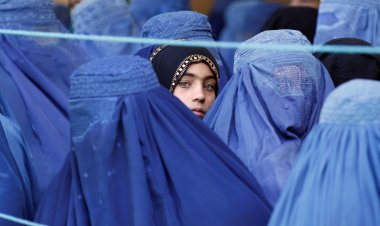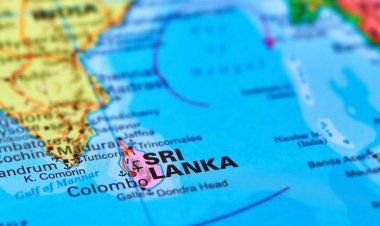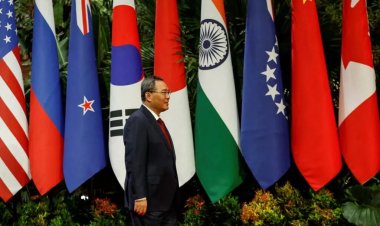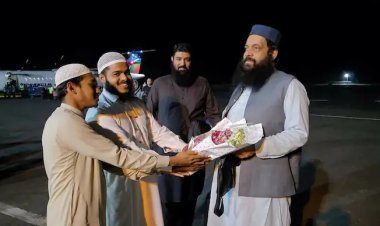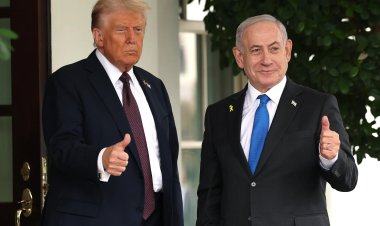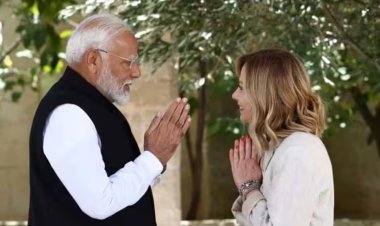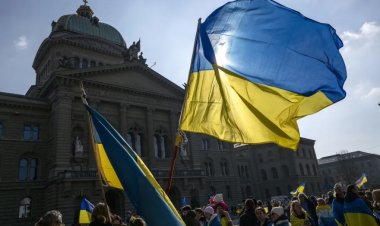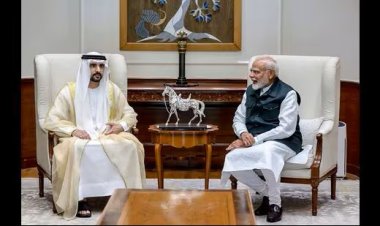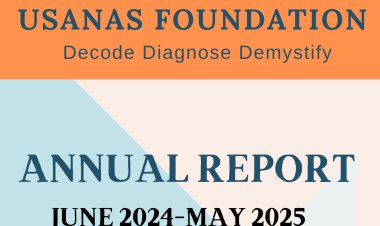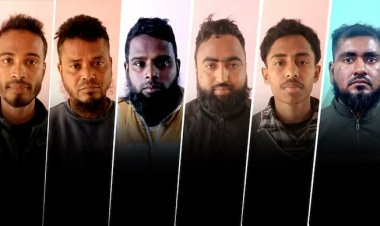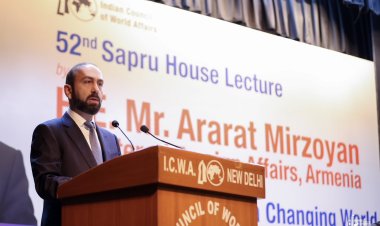Khyber Pakhtunkhwa Under Fire: Pakistan’s Army Turns Inward

Analysis
By Arun Anand
In the shadowed highlands of Khyber Pakhtunkhwa, where the open sky once embodied liberty, it now murmurs with unease. The persistent buzz of drones—mechanised harbingers of death—no longer signals a foreign incursion but represents an internal menace, operated not by external aggressors, but by the very institutions meant to safeguard the nation. The Pakistan military, once venerated as a national bulwark, has assumed the role of covert executioner within its own borders. For the Pashtun people, it is not an external conflict that haunts their homes, but fellow citizens turned oppressors. Children are no longer cautioned merely to look both ways before crossing a road; they are taught instead to attune themselves to the sharp whine of drones overhead. A shepherd tending his flock upon the hills may never return. A wedding, a burial, even an afternoon cricket match can erupt in flames and debris, caused not by insurgents, but by the precision-guided gaze of state-operated drones. Official narratives proclaim surgical strikes against militants, yet the graveyards reveal another truth—anonymous, unrecorded, and heartbreakingly small.
Amidst it all, an unsettling silence endures. The media, once heralded as the fourth estate of democracy, now stands muzzled—either complicit by design or subdued by unseen decrees. The identities of the deceased disappear before they are ever acknowledged. No nightly bulletin recounts their final hours, nor do editorials demand accountability. This silence is no accident—it is imposed, total, and unrelenting. Warnings are not issued through formal notices, but through an atmosphere of fear so pervasive that any dissent risks retribution as devastating as the drones themselves. This apparatus of control evokes some of political philosophy’s bleakest observations. Thomas Hobbes envisioned the Leviathan—a sovereign so absolute that its will constitutes law, its might embodies justice. In Pakistan, the Leviathan no longer shields its people. It devours them. Sovereignty here has deteriorated into despotism, masked by the rhetoric of national security. Michel Foucault’s notion of biopolitics—where the state dictates who may live and who must die—has moved beyond abstraction into grim reality. Pashtun lives are now subjected to this lethal calculus. Their deaths are administered, justified, and subsequently erased. This is the damning evidence of the Pakistan military’s violence.
Yet this tyranny is anything but arbitrary—it is methodical. Niccolò Machiavelli would have understood well; he contended that power must be feared if it cannot be loved. In this context, fear is deliberately engineered through violence shrouded in secrecy, legitimised by the façade of stability. The Pakistani military has seized control of the patriotic discourse, where dissent is framed as disloyalty, and critique is equated with betrayal. In truth, however, it is the military that has betrayed its citizens by bombing their dwellings, muting their grievances, and governing without accountability. There is a uniquely harrowing quality in being slain by one’s own supposed defenders. It constitutes a betrayal more profound than treason, more harrowing than foreign conquest. It corrodes the very foundation of national identity. Giorgio Agamben’s concept of the state of exception—a condition where legal norms are suspended and individuals are reduced to mere existence, devoid of rights—is no longer theoretical. The tribal areas, the Pashtun heartland, have long served as Pakistan’s permanent state of exception—no legal recourse. No accountability. Only drone attacks, official denials, and an enduring silence. This stands as stark testimony to the Pakistan military’s repression.
Picture a father sifting through debris in search of his children's remains. Envision a village assembled not in festivity but in collective grief, bearing small coffins swathed in dust-laden shawls. There are no cameras to document their sorrow, no journalist sufficiently free—or fearless—to report it. Thus, the truth seeps into recollection, unverifiable and unverified, eventually transmuting into legend murmured among the bereaved. Yet even legends possess the power to stir resistance. The Pashtun Tahafuz Movement did not emerge as a conventional political entity, but as an outcry for dignity. It seeks accountability for the missing, justice for the slain, and an end to drone warfare. For this, it is denounced as a menace. Its leaders face intimidation, its assemblies are obstructed, and its message is suppressed. The state cannot abide such a reflective challenge to its authority. In the self-proclaimed “land of the pure,” the mere pursuit of justice has become the most radical form of dissent.
These drone strikes are not exceptions; they constitute policy—unspoken, unacknowledged, yet systematically enforced. No official will confirm it, yet it is widely understood: Pashtun territories serve as proving grounds. For arms. For strategy. For fear. These are not theatres of war, but laboratories of control. And the test subjects remain unchanged. When a child perishes in Lahore, it provokes mourning, public outrage, and national media coverage. When one dies in North Waziristan, there is only silence. And yet, remarkably, resistance endures. Not through violence, but through verse. Not through falsehoods, but through truth. Elderly women gather beneath trees, recounting who was lost and where. Young men coordinate through encrypted platforms, braving arrest to share images of drone debris and scorched homes. Educators decline to deceive their pupils about who launched the attacks. And with every funeral procession, a name is murmured, ensuring it does not fade from memory.
Jean-Jacques Rousseau argued that a state's legitimacy derives from the general will—the collective consent of its people. Yet in Pakistan, whose will truly prevail? It is certainly not that of the Pashtuns, who never sanctioned the bombing of their homes. Here, the social contract lies in tatters, torn apart by repeated betrayals—and the people remember. They bear their wounds in silence, for speaking too boldly risks being forcibly disappeared. The tragedy is deepened by the disturbing sense of normalcy. This is a country where military parades display advanced weaponry, even as remote villages inter children without autopsy, without justice, without acknowledgement. Senior officers beam before the press, adorned with medals for a war never clearly defined. They claim it is waged for peace. Yet true peace cannot be founded upon the graves of the innocent.
This is not solely about a single province. The injustice festering in Khyber Pakhtunkhwa imperils the very soul of Pakistan. In time, violence left unchallenged only spreads. Today, it takes the form of drones; tomorrow, it will be enforced disappearances in urban centres. What begins as an exception, when unrestrained, soon hardens into the norm. And when a state begins to eliminate its own citizens in secrecy, it surrenders any claim to moral legitimacy. Yet hope endures. Not within the corridors of power, but in the unwavering spirit of the people. In the bravery of mothers who continue to speak their sons’ names aloud. In the tenacity of journalists who risk all to report one final truth. In the steadfast refusal of victims to remain silent. As Camus declared, truth is forever revolutionary.
And so the drones may persist, and the silence may grow heavier, yet the truth resounds more clearly. Somewhere, a young boy pens a poem in memory of his slain brother. Somewhere, a protester raises a placard reading “Stop Killing Us.” Somewhere, a community remembers—and that remembrance, resolute and unwavering, marks the first step toward justice. For while the state may dominate the skies, the land—wounded, bloodstained, yet unbroken—remains in the hands of the people.
Disclaimer: This paper is the author's individual scholastic contribution and does not necessarily reflect the organization's viewpoint.
The writer is a distinguished fellow with the Usanas Foundation.

